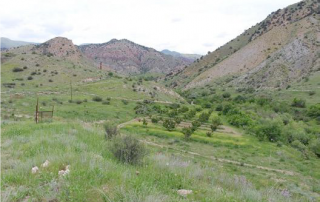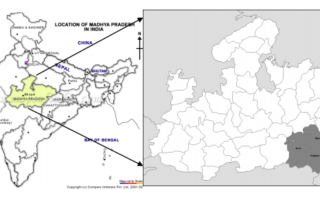Forests influence carbon dioxide patterns within the atmosphere by absorbing carbon through wood, leaves and soil and by doing so act as a stabilize force to regulate climate. In addition, forests are a source of food and income for communities, and help to improve and maintain soil quality, aquifers and regulate surface temperature. The Adaptation Fund finances projects and programmes to help the most vulnerable communities in developing countries to fight land degradation, create smart agricultural practices and integrate adaptive measures within communities to conserve their forests and rich biodiversity.
Strengthening land based adaptation capacity in communities adjacent to protected areas in Armenia
Due to its climate and pronounced location in the South Caucasus with a mountainous landscape, fragile ecosystems and a vulnerable, agricultural based economy, the compounding effects of climate change and land degradation particularly affect livelihoods and economies of Armenia and its approximately 3 million inhabitants. In fact, climate trends over the previous 90 years have
Building Adaptive Capacities of Communities, Livelihoods and Ecological Security in the Kanha-Pench Corridor of Madhya Pradesh
The Kanha-Pench Corridor (KPC) spreads across three administrative districts (Balaghat, Mandla and Seoni) of the Central Indian state of Madhya Pradesh. In the last two decades, the Kanha-Pench Corridor has faced severe degradation caused by an increase in anthropogenic pressure and climate change. Studies of the corridor area reveal that while the forests within the




